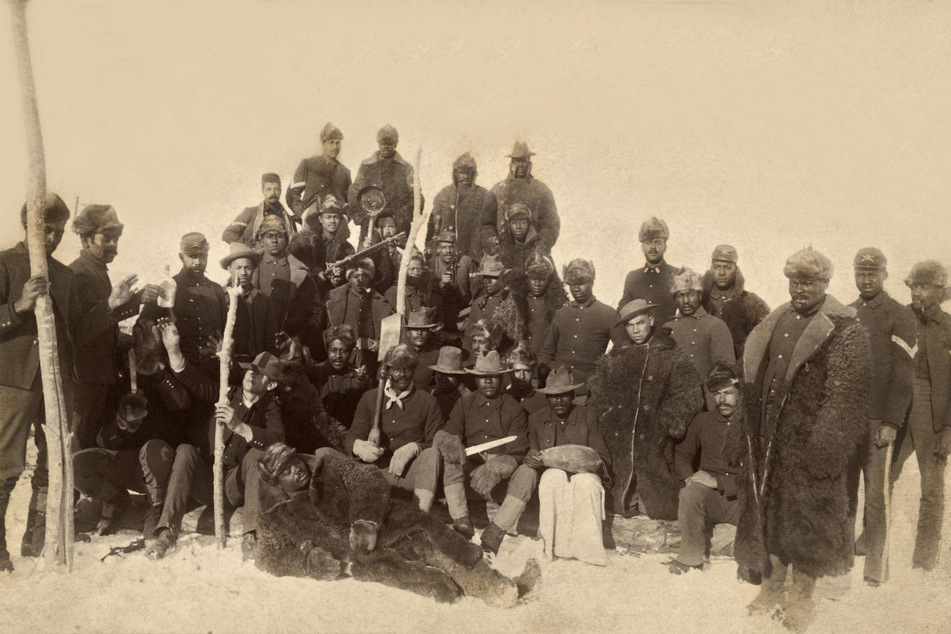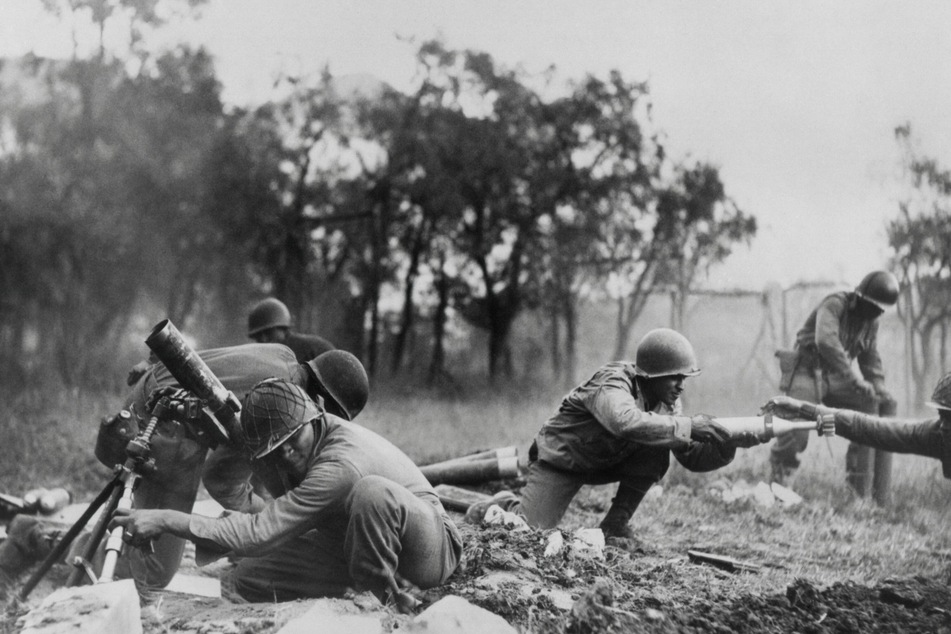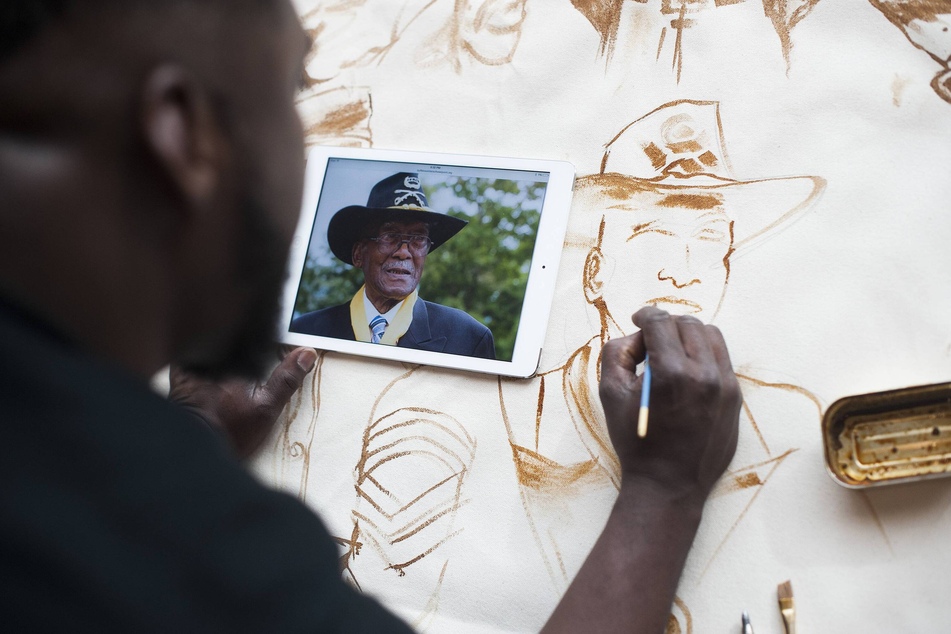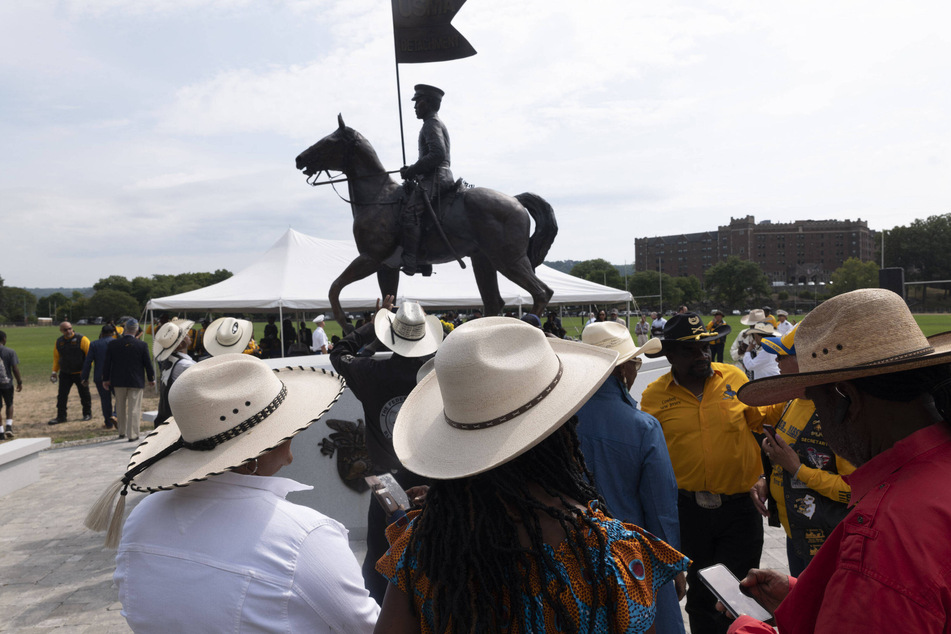National Buffalo Soldiers Day: Who were the Buffalo Soldiers, and what is their legacy?
July 28, 2024, is National Buffalo Soldiers Day. Who were the Buffalo Soldiers, and what is their legacy today?

In 1992, then-President George H.W. Bush declared July 28 to be National Buffalo Soldiers Day.
The occasion marks the 1866 formation of the first peacetime all-Black regiments in the US Army, and their contributions in numerous military engagements even as they lived under American apartheid.
"Despite suffering the discrimination and the injustice that plagued all black Americans during the days of segregation, the members of the 9th and 10th Cavalry regiments served with pride and distinction. On this occasion, we celebrate their outstanding legacy of service," Bush wrote in his proclamation.
Since 1992, annual Buffalo Soldiers Day commemorations have taken place each year across the United States.
Who were the Buffalo Soldiers?

Although Black people have fought on American soil since before the founding of the United States, the Buffalo Soldiers were the first regular Army regiments comprised of African Americans.
The Army Reorganization Act, passed by Congress in 1866, created six all-Black units, including two cavalry and four infantry regiments, whose members came to be known as Buffalo Soldiers.
The professional soldiers in the regiments included Black people who had previously been enslaved and those who had fought for their freedom in the American Civil War (1861-1865). They were charged with accompanying settlers, cattle, and railroad crews, as well as fighting battles to facilitate the US' westward expansion into Indigenous lands.
The Buffalo Soldiers went on to fight in the Spanish-American War (1898), the Philippine–American War (1899-1902), World War I (1914-1918), the Mexican Expedition (1916-1917), World War II (1939-1945), and the Korean War (1950-1953) before desegregation was implemented in the US armed forces.
More than a dozen Buffalo Soldiers have received the Congressional Medal of Honor for their service to the United States.
Mark Matthews, the last known living original Buffalo Soldier, died on September 6, 2005, at the age of 111. He was buried in Arlington National Cemetery.

Where did the Buffalo Soldiers get their name?
The Buffalo Soldiers reportedly got their name from Indigenous groups impressed by their skill in battle during the American Indian Wars. According to the Buffalo Soldiers National Museum, the name was intended as a sign of respect from which the soldiers derived a sense of pride.
When was the US military desegregated?
The US military remained officially segregated until 75 years ago, when President Harry Truman signed Executive Order 9981 calling for integration in all branches of the armed forces. Nevertheless, segregated units were used into the Korean War.
Segregation and discrimination in the armed forces – and the denial of reparations – have contributed to widening the US racial wealth gap. To this day, Black service members and veterans continue to experience higher rates of homelessness, unemployment, incarceration, dishonorable discharges, and withholding of benefits.
What is the legacy of the Buffalo Soldiers?

While the Buffalo Soldiers' service ultimately supported the US government's expansionist and imperialist designs, their legacy of resilience in battling both foreign adversaries and domestic racism is still one to commemorate.
The Buffalo Soldiers often received the worst-quality clothing and equipment from the US Army and were placed on the front lines in many conflicts, as the government persisted in seeing Black people as expendable.
Despite not being treated with the dignity due to them, the soldiers gained a reputation wherever they went for their bravery and prowess in battle.
The story of the Buffalo Soldiers shows the lengths Black Americans have gone to fight for their recognition as equals in the country, and the United States' resistance to acknowledging their humanity.
Even though the US armed forces are no longer segregated, Black Americans today continue to enlist at higher rates than white Americans, and experience worse treatment in and out of service.
National Buffalo Soldiers Day calls not only for a celebration of Black Americans' physical and moral courage. It also demands a critical examination of America's history of racial abuse and concrete steps to repair the damage.
Cover photo: IMAGO / UIG

